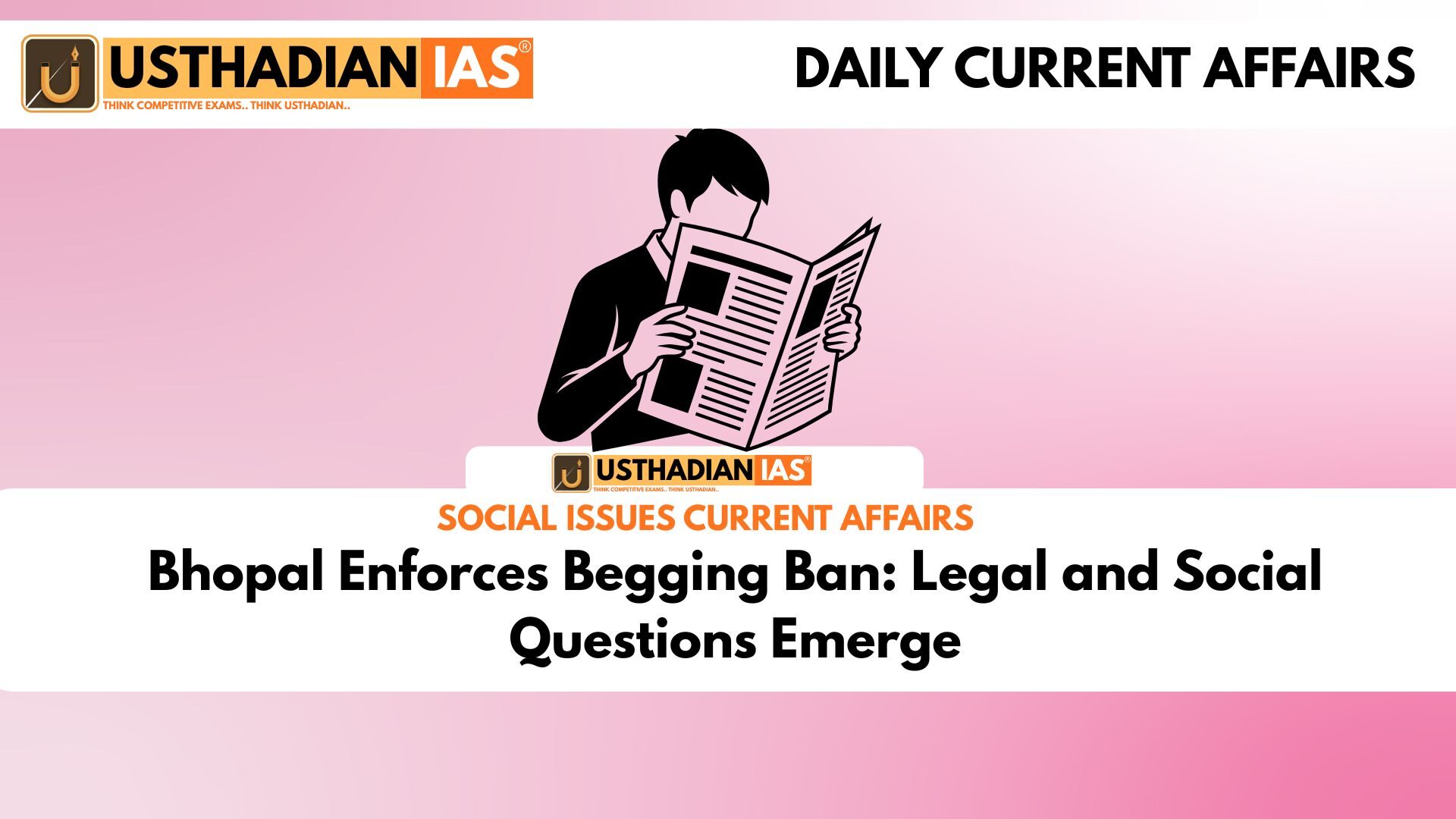Begging Ban Implemented in Bhopal
Bhopal Enforces Begging Ban: Legal and Social Questions Emerge: In a move drawing national attention, Bhopal’s district collector recently imposed a ban on begging in all public spaces. This decision closely follows a similar order issued in Indore, signaling a regional trend in Madhya Pradesh. Both actions have been implemented under Section 163 of the Bharatiya Nagarik Suraksha Sanhita (BNSS), 2023, which empowers officials to act swiftly in urgent situations deemed harmful or disruptive to public order.
The ban restricts beggars from approaching the public at traffic signals, markets, and temples. Non-compliance with such orders can attract penalties under Section 223 of the Bharatiya Nyaya Sanhita (BNS), which includes imprisonment and fines, making this a legally enforceable directive with serious consequences.
Legal Foundation of the Ban
The recent orders in Bhopal and Indore are rooted in BNSS 2023, India’s new code for public order and nuisance management. Under Section 163, district magistrates have the authority to restrict activities causing inconvenience or threat to public spaces. This law replaces older provisions under the CrPC and aims to streamline administrative control.
However, legal experts argue that invoking criminal law in matters of poverty might violate constitutional rights, especially when no central law currently governs begging in India. Instead, most states rely on versions of the colonial-era Bombay Prevention of Begging Act, 1959, which has long been controversial.
Historical and Judicial Backdrop
The Bombay Prevention of Begging Act, 1959, originally sought to “clean up” urban streets by allowing authorities to detain beggars indefinitely. This approach viewed begging more as a threat than a symptom of poverty. Over the years, many states adapted this law with minor changes, resulting in a fragmented legal framework.
In a landmark judgment in 2018, the Delhi High Court struck down provisions of the 1959 Act, arguing that begging is not a crime but a reflection of deep-rooted economic hardship. The ruling highlighted the need for the state to provide basic amenities, social security, and employment support rather than jail time.
However, the judgment did not fully decriminalise begging nationwide, and laws against forced begging (such as child exploitation) still stand.
Current Legal Landscape and Challenges
Despite some progressive steps, India lacks a unified national policy on begging. While Delhi and a few other regions have taken steps toward decriminalisation, others continue to criminalise it. This lack of standardisation creates inconsistencies in how people living in destitution are treated across states.
Further complicating the issue is the limited implementation of social support schemes meant for the homeless and mentally ill. Many laws focus on penalisation rather than rehabilitation or integration.
Social Impact and Activist Concerns
Social activists and human rights groups argue that banning or penalising begging does not solve the underlying problems—homelessness, unemployment, and mental health issues. Instead, they advocate for rehabilitation-based models like the Persons in Destitution (Protection, Care and Rehabilitation) Model Bill, 2016. This bill proposed non-punitive measures like shelter homes, skill training, and healthcare access.
In 2020, the Ministry of Social Justice and Empowerment launched a pilot initiative in ten cities to develop ‘begging-free zones’ by focusing on welfare and job linkage. However, the current wave of bans suggests that enforcement continues to outpace empathy.
Static GK Snapshot
| Topic | Detail |
| Law Empowering Begging Ban | Bharatiya Nagarik Suraksha Sanhita (BNSS), 2023 – Section 163 |
| Punishment Provision | Bharatiya Nyaya Sanhita (BNS), Section 223 |
| First Anti-Begging Law | Bombay Prevention of Begging Act, 1959 |
| Key Court Ruling | 2018 – Delhi High Court decriminalised begging in Delhi |
| Model Rehabilitation Law | Persons in Destitution Bill, 2016 |
| Central Social Initiative | 2020 – Ministry of Social Justice’s Begging-Free Campaign |
| Cities Recently Banning Begging | Bhopal, Indore |
| Nature of Legal Framework | No central law; state-specific acts based on 1959 model |








